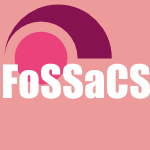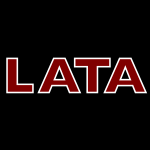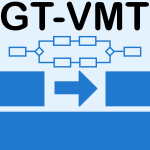Stem correspond$ (all stems)
141 papers:
 SAS-2015-CastelnuovoNRSY #analysis #bottom-up #case study #composition #top-down
SAS-2015-CastelnuovoNRSY #analysis #bottom-up #case study #composition #top-down- Modularity in Lattices: A Case Study on the Correspondence Between Top-Down and Bottom-Up Analysis (GC, MN, NR, MS, HY), pp. 252–274.
 DUXU-DD-2015-LewisUM
DUXU-DD-2015-LewisUM- Investigating the Correspondence Between UMUX-LITE and SUS Scores (JRL, BSU, DEM), pp. 204–211.
 DUXU-DD-2015-Zhang #design #research #semantics
DUXU-DD-2015-Zhang #design #research #semantics- Research on the Correspondence Between Designer End Expressions of Product Semantics with the Cognition of User End (LZ), pp. 379–391.
 ECIR-2015-EsuliF #categorisation
ECIR-2015-EsuliF #categorisation- Distributional Correspondence Indexing for Cross-Language Text Categorization (AE, AMF), pp. 104–109.
 BX-2015-HidakaBTM #analysis #approach #bidirectional #graph transformation
BX-2015-HidakaBTM #analysis #approach #bidirectional #graph transformation- Trace-based Approach to Editability and Correspondence Analysis for Bidirectional Graph Transformations (SH, MB, QMT, KM), pp. 51–65.
 QoSA-2014-DajsurenGSWVB #architecture #formal method
QoSA-2014-DajsurenGSWVB #architecture #formal method- Formalizing correspondence rules for automotive architecture views (YD, CMG, AS, AW, BV, MvdB), pp. 129–138.
 CASE-2014-YamazakiSYI #3d #modelling
CASE-2014-YamazakiSYI #3d #modelling- 3D shape modeling of movable parts of furniture based on time-series surface correspondence (KY, KS, TY, MI), pp. 249–254.
 DATE-2014-AdlerAABG #debugging #logic
DATE-2014-AdlerAABG #debugging #logic- Facilitating timing debug by logic path correspondence (OA, EA, IA, IB, IG), pp. 1–6.
 ESOP-2014-MangalNY #analysis #interprocedural
ESOP-2014-MangalNY #analysis #interprocedural- A Correspondence between Two Approaches to Interprocedural Analysis in the Presence of Join (RM, MN, HY), pp. 513–533.
 CSMR-WCRE-2014-MondalRS14a #detection
CSMR-WCRE-2014-MondalRS14a #detection- Improving the detection accuracy of evolutionary coupling by measuring change correspondence (MM, CKR, KAS), pp. 358–362.
 PEPM-J-2013-Garcia-PerezN14 #automaton #functional #hybrid #on the
PEPM-J-2013-Garcia-PerezN14 #automaton #functional #hybrid #on the- On the syntactic and functional correspondence between hybrid (or layered) normalisers and abstract machines (ÁGP, PN), pp. 176–199.
 DLT-J-2013-DayRS14 #on the #problem
DLT-J-2013-DayRS14 #on the #problem- On the Dual Post Correspondence Problem (JDD, DR, JCS), pp. 1033–1048.
 ICEIS-v1-2014-PequenoG #integration #relational #specification
ICEIS-v1-2014-PequenoG #integration #relational #specification- Specifying Complex Correspondences Between Relational Schemas in a Data Integration Environment (VMP, HG), pp. 18–29.
 ICPR-2014-DanckaersHLLVDS
ICPR-2014-DanckaersHLLVDS- Correspondence Preserving Elastic Surface Registration with Shape Model Prior (FD, TH, DL, AL, SV, SVD, JS), pp. 2143–2148.
 ICPR-2014-MiyanS #consistency #image #using
ICPR-2014-MiyanS #consistency #image #using- Finding Corresponding Patches in Texture Images Using Tensor Consistency Check (SBM, JS), pp. 4021–4026.
 ICPR-2014-RebetezTC #adaptation #correlation #image
ICPR-2014-RebetezTC #adaptation #correlation #image- Network-Based Correlated Correspondence for Unsupervised Domain Adaptation of Hyperspectral Satellite Images (JR, DT, NC), pp. 3921–3926.
 ICPR-2014-Zhao
ICPR-2014-Zhao- Euclidean Structure from Conic Feature Correspondences (ZZ), pp. 4010–4014.
 ICPR-2014-ZhuS #learning #recognition #taxonomy
ICPR-2014-ZhuS #learning #recognition #taxonomy- Correspondence-Free Dictionary Learning for Cross-View Action Recognition (FZ, LS), pp. 4525–4530.
 KEOD-2014-TakahashiTTL #automation #industrial #standard #web
KEOD-2014-TakahashiTTL #automation #industrial #standard #web- An Automatic Coding System with a Three-Grade Confidence Level Corresponding to the National/International Occupation and Industry Standard — Open to the Public on the Web (KT, HT, ST, WL), pp. 369–375.
 PEPM-2013-Garcia-PerezN #functional #reduction #semantics
PEPM-2013-Garcia-PerezN #functional #reduction #semantics- A syntactic and functional correspondence between reduction semantics and reduction-free full normalisers (ÁGP, PN), pp. 107–116.
 DLT-2013-DayRS #on the #problem
DLT-2013-DayRS #on the #problem- On the Dual Post Correspondence Problem (JDD, DR, JCS), pp. 167–178.
 CSCW-2013-Monroy-HernandezBKCC
CSCW-2013-Monroy-HernandezBKCC- The new war correspondents: he rise of civic media curation in urban warfare (AMH, DB, EK, MDC, SC), pp. 1443–1452.
 PPDP-2013-SimmonsZ #automaton #logic #semantics
PPDP-2013-SimmonsZ #automaton #logic #semantics- A logical correspondence between natural semantics and abstract machines (RJS, IZ), pp. 109–119.
 DATE-2012-TtofisT #adaptation #algorithm #hardware #implementation #realtime #towards
DATE-2012-TtofisT #adaptation #algorithm #hardware #implementation #realtime #towards- Towards accurate hardware stereo correspondence: A real-time FPGA implementation of a segmentation-based adaptive support weight algorithm (CT, TT), pp. 703–708.
 ICALP-v2-2012-Dowek #independence
ICALP-v2-2012-Dowek #independence- A Theory Independent Curry-De Bruijn-Howard Correspondence (GD), pp. 13–15.
 ICPR-2012-ChumM #estimation
ICPR-2012-ChumM #estimation- Homography estimation from correspondences of local elliptical features (OC, JM), pp. 3236–3239.
 ICPR-2012-FuLBF
ICPR-2012-FuLBF- Spectral correspondence method for fingerprint minutia matching (XF, CL, JB, JF), pp. 1743–1746.
 ICPR-2012-KawabataK #approach #multi #using
ICPR-2012-KawabataK #approach #multi #using- Plane based multi camera calibration under unknown correspondence using ICP-like approach (SK, YK), pp. 3700–3703.
 ICPR-2012-KramerABSB #component #documentation #programming #robust
ICPR-2012-KramerABSB #component #documentation #programming #robust- Robust stereo correspondence for documents by matching connected components of text-lines with dynamic programming (MK, MZA, SSB, FS, TMB), pp. 734–737.
 ICPR-2012-LiuC #3d
ICPR-2012-LiuC #3d- 3D tracking of deformable surface by propagating feature correspondences (YL, YQC), pp. 2202–2205.
 ICPR-2012-PanS #3d
ICPR-2012-PanS #3d- 3D shape isometric correspondence by spectral assignment (XP, LGS), pp. 2210–2213.
 DAC-2011-Topaloglu #3d #challenge #integration
DAC-2011-Topaloglu #3d #challenge #integration- Applications driving 3D integration and corresponding manufacturing challenges (ROT), pp. 220–223.
 DLT-J-2009-HalavaH11 #problem #reduction
DLT-J-2009-HalavaH11 #problem #reduction- Reduction Tree of the Binary Generalized Post Correspondence Problem (VH, SH), pp. 473–490.
 SEKE-2011-GeigerSW #automation #consistency #towards
SEKE-2011-GeigerSW #automation #consistency #towards- Towards Automated Conformance Checking of ebBP-ST Choreographies and Corresponding WS-BPEL Based Orchestrations (MG, AS, GW), pp. 566–571.
 FoSSaCS-2010-SchroderP #algebra
FoSSaCS-2010-SchroderP #algebra- Coalgebraic Correspondence Theory (LS, DP), pp. 328–342.
 LATA-2010-KlunderR #commutative #problem
LATA-2010-KlunderR #commutative #problem- Post Correspondence Problem with Partially Commutative Alphabets (BK, WR), pp. 356–367.
 CAiSE-2010-WeidlichDM #framework #identification #modelling #process
CAiSE-2010-WeidlichDM #framework #identification #modelling #process- The ICoP Framework: Identification of Correspondences between Process Models (MW, RMD, JM), pp. 483–498.
 ICML-2010-BordesUW #ambiguity #learning #ranking #semantics
ICML-2010-BordesUW #ambiguity #learning #ranking #semantics- Label Ranking under Ambiguous Supervision for Learning Semantic Correspondences (AB, NU, JW), pp. 103–110.
 ICPR-2010-RodolaAT #approach #game studies #multi #robust
ICPR-2010-RodolaAT #approach #game studies #multi #robust- A Game-Theoretic Approach to Robust Selection of Multi-view Point Correspondence (ER, AA, AT), pp. 57–60.
 ICPR-2010-SeverskyY #3d #detection #scalability #set
ICPR-2010-SeverskyY #3d #detection #scalability #set- Scalable Cage-Driven Feature Detection and Shape Correspondence for 3D Point Sets (LMS, LY), pp. 3557–3560.
 ICPR-2010-SuzukiIAT #algorithm #estimation #image #using
ICPR-2010-SuzukiIAT #algorithm #estimation #image #using- A Scale Estimation Algorithm Using Phase-Based Correspondence Matching for Electron Microscope Images (AS, KI, TA, RT), pp. 2420–2423.
 ICPR-2010-YaegashiY #kernel #learning #multi #recognition #using
ICPR-2010-YaegashiY #kernel #learning #multi #recognition #using- Geotagged Photo Recognition Using Corresponding Aerial Photos with Multiple Kernel Learning (KY, KY), pp. 3272–3275.
 KEOD-2010-EynardMM #analysis #on the #ontology
KEOD-2010-EynardMM #analysis #on the #ontology- On the Use of Correspondence Analysis to Learn Seed Ontologies from Text (DE, FM, MM), pp. 430–437.
 ICDAR-2009-WangBT #automation #documentation #image
ICDAR-2009-WangBT #automation #documentation #image- Automatic Corresponding Control Points Selection for Historical Document Image Registration (JW, MSB, CLT), pp. 1176–1180.
 SIGMOD-2009-RadwanPSY #generative
SIGMOD-2009-RadwanPSY #generative- Top-k generation of integrated schemas based on directed and weighted correspondences (AR, LP, IRS, AAY), pp. 641–654.
 DLT-2009-Harju #matrix #problem
DLT-2009-Harju #matrix #problem- Post Correspondence Problem and Small Dimensional Matrices (TH), pp. 39–46.
 CAiSE-2009-MaoBPF #automation #generative #using
CAiSE-2009-MaoBPF #automation #generative #using- Defining and Using Schematic Correspondences for Automatically Generating Schema Mappings (LM, KB, NWP, AAAF), pp. 79–93.
 EDOC-2009-RomeroJV #multi #specification
EDOC-2009-RomeroJV #multi #specification- Realizing Correspondences in Multi-viewpoint Specifications (JRR, JIJ, AV), pp. 163–172.
 CIKM-2009-ZhuWZ #learning
CIKM-2009-ZhuWZ #learning- Label correspondence learning for part-of-speech annotation transformation (MZ, HW, JZ), pp. 1461–1464.
 KDD-2009-AhmedXCM #biology #mining #modelling #topic
KDD-2009-AhmedXCM #biology #mining #modelling #topic- Structured correspondence topic models for mining captioned figures in biological literature (AA, EPX, WWC, RFM), pp. 39–48.
 KEOD-2009-LocoroM #algorithm #ambiguity #ontology #word
KEOD-2009-LocoroM #algorithm #ambiguity #ontology #word- A Correspondence Repair Algorithm based on Word Sense Disambiguation and Upper Ontologies (AL, VM), pp. 239–246.
 ECMDA-FA-2009-Kolovos #comparison #modelling
ECMDA-FA-2009-Kolovos #comparison #modelling- Establishing Correspondences between Models with the Epsilon Comparison Language (DSK), pp. 146–157.
 TOOLS-EUROPE-2009-TreharneTPK #automation #formal method #generative #modelling #uml
TOOLS-EUROPE-2009-TreharneTPK #automation #formal method #generative #modelling #uml- Automatic Generation of Integrated Formal Models Corresponding to UML System Models (HT, ET, RFP, DSK), pp. 357–367.
 SCAM-2008-SingerK
SCAM-2008-SingerK- Exploiting the Correspondence between Micro Patterns and Class Names (JS, CCK), pp. 67–76.
 GT-VMT-2008-NarayananK #model transformation #verification
GT-VMT-2008-NarayananK #model transformation #verification- Verifying Model Transformations by Structural Correspondence (AN, GK).
 ICPR-2008-FakihZ
ICPR-2008-FakihZ- Structure from Motion: Combining features correspondences and optical flow (AHF, JSZ), pp. 1–4.
 ICPR-2008-IonHKM #2d #coordination
ICPR-2008-IonHKM #2d #coordination- A coordinate system for articulated 2D shape point correspondences (AI, YH, WGK, SBLM), pp. 1–4.
 ICPR-2008-KarlssonA #image
ICPR-2008-KarlssonA #image- MDL patch correspondences on unlabeled images (JK, KÅ), pp. 1–5.
 ICPR-2008-KooKC #image
ICPR-2008-KooKC #image- Non-rigid image registration based on the globally optimized correspondences (HIK, JGK, NIC), pp. 1–4.
 ICPR-2008-MinOS #symmetry
ICPR-2008-MinOS #symmetry- Asymmetric post-processing for stereo correspondence (DBM, JO, KS), pp. 1–4.
 ICPR-2008-RastgarZWD #estimation #robust #validation
ICPR-2008-RastgarZWD #estimation #robust #validation- Validation of correspondences in MLESAC robust estimation (HR, LZ, DW, ED), pp. 1–4.
 ICPR-2008-StewmanD #recognition
ICPR-2008-StewmanD #recognition- Contour registration and corresponding point selection for dorsal fin recognition (JHS, KD), pp. 1–5.
 ICPR-2008-TsolakisFD #framework #performance #using
ICPR-2008-TsolakisFD #framework #performance #using- A framework for efficient correspondence using feature interrelations (AGT, MF, AD), pp. 1–4.
 ICPR-2008-XuD
ICPR-2008-XuD- A local descriptor for finding corresponding points in vector fields (LX, HQD), pp. 1–4.
 ICPR-2008-ZhaoG #multi #recognition #using
ICPR-2008-ZhaoG #multi #recognition #using- Establishing point correspondence using multidirectional binary pattern for face recognition (SZ, YG), pp. 1–4.
 BX-2008-Vallecillo1 #multi #specification
BX-2008-Vallecillo1 #multi #specification- Realizing Correspondences in Multi-viewpoint Specifications (AV), p. 33.
 FSE-2008-CottrellWD #reuse #source code
FSE-2008-CottrellWD #reuse #source code- Semi-automating small-scale source code reuse via structural correspondence (RC, RJW, JD), pp. 214–225.
 ICLP-2008-OetschT #semantics
ICLP-2008-OetschT #semantics- Program Correspondence under the Answer-Set Semantics: The Non-ground Case (JO, HT), pp. 591–605.
 CSMR-2007-SelonenK #metamodelling
CSMR-2007-SelonenK #metamodelling- Metamodel-Based Inference of Inter-Model Correspondence (PS, MK), pp. 71–80.
 VISSOFT-2007-Sawant #architecture #multi #named #visualisation
VISSOFT-2007-Sawant #architecture #multi #named #visualisation- DiffArchViz: A Tool to Visualize Correspondence Between Multiple Representations of a Software Architecture (APS), pp. 121–128.
 CAiSE-2007-ZhaoLYS #workflow
CAiSE-2007-ZhaoLYS #workflow- Handling Instance Correspondence in Inter-organisational Workflows (XZ, CL, YY, WS), pp. 51–65.
 ICEIS-DISI-2007-RayG #using
ICEIS-DISI-2007-RayG #using- A method for early correspondence discovery using instance data (IR, CJMG), pp. 258–263.
 ICEIS-J-2007-TraversonA #requirements #specification #using
ICEIS-J-2007-TraversonA #requirements #specification #using- Linking Requirements to EIS Specifications Using Correspondence Rules (BT, CA), pp. 276–285.
 ESEC-FSE-2007-CottrellCWD
ESEC-FSE-2007-CottrellCWD- Determining detailed structural correspondence for generalization tasks (RC, JJCC, RJW, JD), pp. 165–174.
 ICLP-2007-KoninckSD #algorithm #logic
ICLP-2007-KoninckSD #algorithm #logic- The Correspondence Between the Logical Algorithms Language and CHR (LDK, TS, BD), pp. 209–223.
 DATE-2006-Al-ArsHG #fault #modelling #testing
DATE-2006-Al-ArsHG #fault #modelling #testing- Space of DRAM fault models and corresponding testing (ZAA, SH, AJvdG), pp. 1252–1257.
 DLT-2006-GlasserTW #polynomial
DLT-2006-GlasserTW #polynomial- Perfect Correspondences Between Dot-Depth and Polynomial-Time Hierarchy (CG, SDT, KWW), pp. 408–419.
 ICPR-v1-2006-WuW #graph #using
ICPR-v1-2006-WuW #graph #using- Stereo Correspondence Using Stripe Adjacency Graph (CCW, ZFW), pp. 123–126.
 ICPR-v1-2006-ZhangSL #multi #segmentation #using
ICPR-v1-2006-ZhangSL #multi #segmentation #using- Motion Segmentation by Multibody Trifocal Tensor Using Line Correspondence (JZ, FS, YL), pp. 599–602.
 ICPR-v2-2006-JonssonF #learning
ICPR-v2-2006-JonssonF #learning- Correspondence-free Associative Learning (EJ, MF), pp. 441–446.
 ICPR-v2-2006-RaoDX #modelling #programming
ICPR-v2-2006-RaoDX #modelling #programming- Joint Correspondence and Background Modeling Based on Tree Dynamic Programming (NIR, HD, GX), pp. 425–428.
 ICPR-v3-2006-KarlssonE #benchmark #metric
ICPR-v3-2006-KarlssonE #benchmark #metric- A Ground Truth Correspondence Measure for Benchmarking (JK, AE), pp. 568–573.
 ICPR-v4-2006-PerdochMC #geometry
ICPR-v4-2006-PerdochMC #geometry- Epipolar Geometry from Two Correspondences (MP, JM, OC), pp. 215–219.
 KDD-2006-MessaoudBR #analysis #data transformation #multi #performance
KDD-2006-MessaoudBR #analysis #data transformation #multi #performance- Efficient multidimensional data representations based on multiple correspondence analysis (RBM, OB, SLR), pp. 662–667.
 SAC-2006-WangTTY #approach #identification #multi
SAC-2006-WangTTY #approach #identification #multi- An approach for identifying attribute correspondences in multilingual schemas (HW, ST, YT, DY), pp. 1674–1678.
 FASE-2005-BergGJLRS #consistency #on the #testing
FASE-2005-BergGJLRS #consistency #on the #testing- On the Correspondence Between Conformance Testing and Regular Inference (TB, OG, BJ, ML, HR, BS), pp. 175–189.
 SAS-2005-NarasamdyaV
SAS-2005-NarasamdyaV- Finding Basic Block and Variable Correspondence (IN, AV), pp. 251–267.
 DLT-J-2004-BorchertLSTT05 #polynomial
DLT-J-2004-BorchertLSTT05 #polynomial- The dot-depth and the polynomial hierarchies correspond on the delta levels (BB, KJL, FS, PT, DT), pp. 625–644.
 ICEIS-v1-2005-PequenoA #semantics #using
ICEIS-v1-2005-PequenoA #semantics #using- Using Correspondence Assertions to Specify the Semantics of Views in an Object-Relational Data Warehouse (VMP, JNA), pp. 219–225.
 ICML-2005-ScholkopfSB #machine learning #problem
ICML-2005-ScholkopfSB #machine learning #problem- Object correspondence as a machine learning problem (BS, FS, VB), pp. 776–783.
 DLT-2004-BorchertLSTT #polynomial
DLT-2004-BorchertLSTT #polynomial- The Dot-Depth and the Polynomial Hierarchy Correspond on the Delta Levels (BB, KJL, FS, PT, DT), pp. 89–101.
 ICPR-v3-2004-BoughorbelKAA #energy
ICPR-v3-2004-BoughorbelKAA #energy- Gaussian Energy Functions for Registration without Correspondences (FB, AK, BRA, MAA), pp. 24–27.
 ICPR-v3-2004-CarneiroJ #using
ICPR-v3-2004-CarneiroJ #using- Pruning Local Feature Correspondences Using Shape Context (GC, ADJ), pp. 16–19.
 ICPR-v3-2004-LiSH #estimation #feedback #graph #image #retrieval
ICPR-v3-2004-LiSH #estimation #feedback #graph #image #retrieval- Image Retrieval with Relevance Feedback Based on Graph-Theoretic Region Correspondence Estimation (CYL, MCS, CTH), pp. 842–845.
 ICPR-v3-2004-MaoSCA #3d
ICPR-v3-2004-MaoSCA #3d- Constructing Dense Correspondences to Analyze 3D Facial Change (ZM, JPS, WPC, AFA), pp. 144–148.
 ICPR-v3-2004-TwiningMT #approach #image #problem
ICPR-v3-2004-TwiningMT #approach #image #problem- A Unified Information-Theoretic Approach to the Correspondence Problem in Image Registration (CJT, SM, CJT), pp. 704–709.
 ICPR-v4-2004-Ben-AriS
ICPR-v4-2004-Ben-AriS- Non-Isotropic Regularization of the Correspondence Space in Stereo-Vision (RBA, NAS), pp. 293–296.
 ICPR-v4-2004-ChetverikovMJ
ICPR-v4-2004-ChetverikovMJ- Finding Region Correspondences for Wide Baseline Stereo (DC, ZM, ZJ), pp. 276–279.
 ICPR-v4-2004-MayoralA #evaluation #fault
ICPR-v4-2004-MayoralA #evaluation #fault- Evaluation of Correspondence Errors for Stereo (RM, MA), pp. 104–107.
 ICPR-v4-2004-ZhangN04a
ICPR-v4-2004-ZhangN04a- Improved Temporal Correspondences in Stereo-Vision by RANSAC (HZ, SN), pp. 52–55.
 PPDP-2004-CarlierW #type inference
PPDP-2004-CarlierW #type inference- Type inference with expansion variables and intersection types in system E and an exact correspondence with β-reduction (SC, JBW), pp. 132–143.
 VLDB-2003-PottingerB #modelling
VLDB-2003-PottingerB #modelling- Merging Models Based on Given Correspondences (RP, PAB), pp. 826–873.
 CAiSE-2003-NikolaidouA #design #information management
CAiSE-2003-NikolaidouA #design #information management- Exploring Web-Based Information System Design: A Discrete-Stage Methodology and the Corresponding Model (MN, DA), pp. 159–174.
 PPDP-2003-AgerBDM #automaton #functional
PPDP-2003-AgerBDM #automaton #functional- A functional correspondence between evaluators and abstract machines (MSA, DB, OD, JM), pp. 8–19.
 CSL-2003-Miquel #normalisation #set
CSL-2003-Miquel #normalisation #set- A Strongly Normalising Curry-Howard Correspondence for IZF Set Theory (AM), pp. 441–454.
 ICALP-2002-Hitchcock #effectiveness
ICALP-2002-Hitchcock #effectiveness- Correspondence Principles for Effective Dimensions (JMH), pp. 561–571.
 ICEIS-2002-SanchezSVACD #data mining #mining #using
ICEIS-2002-SanchezSVACD #data mining #mining #using- Using Data Mining Techniques to Analyze Correspondences between Partitions (DS, JMS, MAVM, VA, JC, GD), pp. 179–186.
 ICPR-v4-2002-Robles-KellyH02a #approach
ICPR-v4-2002-Robles-KellyH02a #approach- A Graph-Spectral Approach to Correspondence Matching (ARK, ERH), pp. 176–179.
 VMCAI-2002-BartheDJS #virtual machine
VMCAI-2002-BartheDJS #virtual machine- A Formal Correspondence between Offensive and Defensive JavaCard Virtual Machines (GB, GD, LJ, SMdS), pp. 32–45.
 ICSM-2001-CookHM #behaviour #concurrent
ICSM-2001-CookHM #behaviour #concurrent- Measuring Behavioral Correspondence to a Timed Concurrent Model (JEC, CH, CM), pp. 332–341.
 ICML-2001-MarxDB #clustering #detection
ICML-2001-MarxDB #clustering #detection- Coupled Clustering: a Method for Detecting Structural Correspondence (ZM, ID, JMB), pp. 353–360.
 SAC-2001-AlhajjP #database #information management #object-oriented
SAC-2001-AlhajjP #database #information management #object-oriented- Transferring database contents from a conventional information systemto a corresponding existing object oriented information system (RA, FP), pp. 220–224.
 ICALP-2000-Santo #normalisation
ICALP-2000-Santo #normalisation- Revisiting the Correspondence between Cut Elimination and Normalisation (JES), pp. 600–611.
 ICPR-v1-2000-FermullerA #process #statistics
ICPR-v1-2000-FermullerA #process #statistics- The Statistics of Optical Flow: Implications for the Process of Correspondence in Vision (CF, YA), pp. 1119–1126.
 ICPR-v1-2000-LiuRC #geometry #using
ICPR-v1-2000-LiuRC #geometry #using- Using Geometric Properties of Correspondence Vectors for the Registration of Free-Form Shapes (YL, MAR, DC), pp. 5011–5014.
 ICPR-v1-2000-MossH #markov #monte carlo #using
ICPR-v1-2000-MossH #markov #monte carlo #using- Alignment and Correspondence Using Markov Chain Monte Carlo (SM, ERH), pp. 1928–1931.
 ICPR-v1-2000-SugimotoM #coordination #image #multi
ICPR-v1-2000-SugimotoM #coordination #image #multi- Multilinear Relationships between the Coordinates of Corresponding Image Conics (AS, TM), pp. 1550–1554.
 ICPR-v3-2000-AbbadeniZW #visual notation
ICPR-v3-2000-AbbadeniZW #visual notation- Autocovariance-based Perceptual Textural Features Corresponding to Human Visual Perception (NA, DZ, SW), pp. 3913–3916.
 ICPR-v3-2000-MartiZR #image #novel #similarity
ICPR-v3-2000-MartiZR #image #novel #similarity- A Novel Similarity Measure to Evaluate Image Correspondence (RM, RZ, CMER), pp. 3171–3174.
 LICS-2000-Krivine #set
LICS-2000-Krivine #set- The Curry-Howard Correspondence in Set Theory (JLK), pp. 307–308.
 HCI-EI-1999-KandaN #classification #visual notation
HCI-EI-1999-KandaN #classification #visual notation- Studies on Classification of Similar Trademarks Corresponding to Human Visual Cognitive Sense (TK, HN), pp. 501–505.
 OOPSLA-1999-RinatMS #morphism #object-oriented #polymorphism
OOPSLA-1999-RinatMS #morphism #object-oriented #polymorphism- Correspondence Polymorphism for Object-Oriented Languages (RR, MM, SFS), pp. 167–186.
 ICPR-1998-ChaiM #framework
ICPR-1998-ChaiM #framework- An evolutionary framework for stereo correspondence (JC, SM), pp. 841–844.
 ICPR-1998-Govindu0C #geometry #image #using
ICPR-1998-Govindu0C #geometry #image #using- Using geometric properties for correspondence-less image alignment (VG, CS, RC), pp. 37–41.
 ICPR-1998-KawaiUIST #using
ICPR-1998-KawaiUIST #using- Stereo correspondence using segment connectivity (YK, TU, YI, YS, FT), pp. 648–651.
 ICPR-1998-Ude #estimation #optimisation
ICPR-1998-Ude #estimation #optimisation- Nonlinear least squares optimisation of unit quaternion functions for pose estimation from corresponding features (AU), pp. 425–427.
 ICDAR-1997-GuoDR #detection #random
ICDAR-1997-GuoDR #detection #random- Local correspondence for detecting random forgeries (JKG, DSD, AR), pp. 319–323.
 ICDAR-1997-TonouchiK #algorithm #online #recognition #using
ICDAR-1997-TonouchiK #algorithm #online #recognition #using- An on-line Japanese character recognition method using length-based stroke correspondence algorithm (YT, AK), pp. 633–636.
 ICLP-1997-BelleghemDS #logic #logic programming
ICLP-1997-BelleghemDS #logic #logic programming- A Strong Correspondence between Description Logics and Open Logic Programming (KVB, MD, DDS), pp. 346–360.
 ICPR-1996-Bayro-CorrochanoLS #algebra #framework #geometry #using
ICPR-1996-Bayro-CorrochanoLS #algebra #framework #geometry #using- Geometric algebra: a framework for computing point and line correspondences and projective structure using n uncalibrated cameras (EBC, JL, GS), pp. 334–338.
 ICPR-1996-HsiehLFK #algorithm #image #performance
ICPR-1996-HsiehLFK #algorithm #image #performance- A fast algorithm for image registration without predetermining correspondences (JWH, HYML, KCF, MTK), pp. 765–769.
 ICPR-1996-KnechtS #geometry #modelling #using
ICPR-1996-KnechtS #geometry #modelling #using- Finding map correspondence using geometric models (JdK, KS), pp. 755–759.
 ICPR-1996-XuT #geometry #multi #segmentation
ICPR-1996-XuT #geometry #multi #segmentation- Correspondence and segmentation of multiple rigid motions via epipolar geometry (GX, ST), pp. 213–217.
 ICDAR-v2-1995-NegiSA #approach #segmentation #word
ICDAR-v2-1995-NegiSA #approach #segmentation #word- A correspondence based approach to segmentation of cursive words (AN, KSS, AA), pp. 1034–1037.
 ICDAR-v2-1995-WakaharaSNMO #online #problem #recognition
ICDAR-v2-1995-WakaharaSNMO #online #problem #recognition- On-line cursive Kanji character recognition as stroke correspondence problem (TW, AS, NN, SM, KO), pp. 1059–1064.
 DLT-1995-Lipponen #on the #problem
DLT-1995-Lipponen #on the #problem- On F-Prime Solutions of the Post Correspondence Problem (ML), pp. 139–147.
 ICALP-1995-Lipponen #problem #word
ICALP-1995-Lipponen #problem #word- Post Correspondence Problem: Words Possible as Primitive Solutions (ML), pp. 63–74.
 SAC-1993-Sabharwal93a #2d #3d #image #parametricity
SAC-1993-Sabharwal93a #2d #3d #image #parametricity- Recovering 3D Image Parameters from Corresponding Two 2D Images (CLS), pp. 402–409.
 KR-1989-Leishman #concept #graph
KR-1989-Leishman #concept #graph- Analogy as a Constrained Partial Correspondence Over Conceptual Graphs (DL), pp. 223–234.
 ICALP-1986-BrzozowskiS #analysis #network #simulation #summary
ICALP-1986-BrzozowskiS #analysis #network #simulation #summary- Correspondence between Ternary Simulation and Binary Race Analysis in Gate Networks (Extended Summary) (JAB, CJHS), pp. 69–78.
 ICALP-1981-EhrenfeuchtR #on the #problem
ICALP-1981-EhrenfeuchtR #on the #problem- On the (Generalized) Post Correspondence Problem with Lists of Length 2 (AE, GR), pp. 408–416.
 SAS-2015-CastelnuovoNRSY #analysis #bottom-up #case study #composition #top-down
SAS-2015-CastelnuovoNRSY #analysis #bottom-up #case study #composition #top-down DUXU-DD-2015-LewisUM
DUXU-DD-2015-LewisUM DUXU-DD-2015-Zhang #design #research #semantics
DUXU-DD-2015-Zhang #design #research #semantics ECIR-2015-EsuliF #categorisation
ECIR-2015-EsuliF #categorisation BX-2015-HidakaBTM #analysis #approach #bidirectional #graph transformation
BX-2015-HidakaBTM #analysis #approach #bidirectional #graph transformation QoSA-2014-DajsurenGSWVB #architecture #formal method
QoSA-2014-DajsurenGSWVB #architecture #formal method CASE-2014-YamazakiSYI #3d #modelling
CASE-2014-YamazakiSYI #3d #modelling DATE-2014-AdlerAABG #debugging #logic
DATE-2014-AdlerAABG #debugging #logic ESOP-2014-MangalNY #analysis #interprocedural
ESOP-2014-MangalNY #analysis #interprocedural CSMR-WCRE-2014-MondalRS14a #detection
CSMR-WCRE-2014-MondalRS14a #detection PEPM-J-2013-Garcia-PerezN14 #automaton #functional #hybrid #on the
PEPM-J-2013-Garcia-PerezN14 #automaton #functional #hybrid #on the DLT-J-2013-DayRS14 #on the #problem
DLT-J-2013-DayRS14 #on the #problem ICEIS-v1-2014-PequenoG #integration #relational #specification
ICEIS-v1-2014-PequenoG #integration #relational #specification ICPR-2014-DanckaersHLLVDS
ICPR-2014-DanckaersHLLVDS ICPR-2014-MiyanS #consistency #image #using
ICPR-2014-MiyanS #consistency #image #using ICPR-2014-RebetezTC #adaptation #correlation #image
ICPR-2014-RebetezTC #adaptation #correlation #image ICPR-2014-Zhao
ICPR-2014-Zhao ICPR-2014-ZhuS #learning #recognition #taxonomy
ICPR-2014-ZhuS #learning #recognition #taxonomy KEOD-2014-TakahashiTTL #automation #industrial #standard #web
KEOD-2014-TakahashiTTL #automation #industrial #standard #web PEPM-2013-Garcia-PerezN #functional #reduction #semantics
PEPM-2013-Garcia-PerezN #functional #reduction #semantics DLT-2013-DayRS #on the #problem
DLT-2013-DayRS #on the #problem CSCW-2013-Monroy-HernandezBKCC
CSCW-2013-Monroy-HernandezBKCC PPDP-2013-SimmonsZ #automaton #logic #semantics
PPDP-2013-SimmonsZ #automaton #logic #semantics DATE-2012-TtofisT #adaptation #algorithm #hardware #implementation #realtime #towards
DATE-2012-TtofisT #adaptation #algorithm #hardware #implementation #realtime #towards ICALP-v2-2012-Dowek #independence
ICALP-v2-2012-Dowek #independence ICPR-2012-ChumM #estimation
ICPR-2012-ChumM #estimation ICPR-2012-FuLBF
ICPR-2012-FuLBF ICPR-2012-KawabataK #approach #multi #using
ICPR-2012-KawabataK #approach #multi #using ICPR-2012-KramerABSB #component #documentation #programming #robust
ICPR-2012-KramerABSB #component #documentation #programming #robust ICPR-2012-LiuC #3d
ICPR-2012-LiuC #3d ICPR-2012-PanS #3d
ICPR-2012-PanS #3d DAC-2011-Topaloglu #3d #challenge #integration
DAC-2011-Topaloglu #3d #challenge #integration DLT-J-2009-HalavaH11 #problem #reduction
DLT-J-2009-HalavaH11 #problem #reduction SEKE-2011-GeigerSW #automation #consistency #towards
SEKE-2011-GeigerSW #automation #consistency #towards FoSSaCS-2010-SchroderP #algebra
FoSSaCS-2010-SchroderP #algebra LATA-2010-KlunderR #commutative #problem
LATA-2010-KlunderR #commutative #problem CAiSE-2010-WeidlichDM #framework #identification #modelling #process
CAiSE-2010-WeidlichDM #framework #identification #modelling #process ICML-2010-BordesUW #ambiguity #learning #ranking #semantics
ICML-2010-BordesUW #ambiguity #learning #ranking #semantics ICPR-2010-RodolaAT #approach #game studies #multi #robust
ICPR-2010-RodolaAT #approach #game studies #multi #robust ICPR-2010-SeverskyY #3d #detection #scalability #set
ICPR-2010-SeverskyY #3d #detection #scalability #set ICPR-2010-SuzukiIAT #algorithm #estimation #image #using
ICPR-2010-SuzukiIAT #algorithm #estimation #image #using ICPR-2010-YaegashiY #kernel #learning #multi #recognition #using
ICPR-2010-YaegashiY #kernel #learning #multi #recognition #using KEOD-2010-EynardMM #analysis #on the #ontology
KEOD-2010-EynardMM #analysis #on the #ontology ICDAR-2009-WangBT #automation #documentation #image
ICDAR-2009-WangBT #automation #documentation #image SIGMOD-2009-RadwanPSY #generative
SIGMOD-2009-RadwanPSY #generative DLT-2009-Harju #matrix #problem
DLT-2009-Harju #matrix #problem CAiSE-2009-MaoBPF #automation #generative #using
CAiSE-2009-MaoBPF #automation #generative #using EDOC-2009-RomeroJV #multi #specification
EDOC-2009-RomeroJV #multi #specification CIKM-2009-ZhuWZ #learning
CIKM-2009-ZhuWZ #learning KDD-2009-AhmedXCM #biology #mining #modelling #topic
KDD-2009-AhmedXCM #biology #mining #modelling #topic KEOD-2009-LocoroM #algorithm #ambiguity #ontology #word
KEOD-2009-LocoroM #algorithm #ambiguity #ontology #word ECMDA-FA-2009-Kolovos #comparison #modelling
ECMDA-FA-2009-Kolovos #comparison #modelling TOOLS-EUROPE-2009-TreharneTPK #automation #formal method #generative #modelling #uml
TOOLS-EUROPE-2009-TreharneTPK #automation #formal method #generative #modelling #uml SCAM-2008-SingerK
SCAM-2008-SingerK GT-VMT-2008-NarayananK #model transformation #verification
GT-VMT-2008-NarayananK #model transformation #verification ICPR-2008-FakihZ
ICPR-2008-FakihZ ICPR-2008-IonHKM #2d #coordination
ICPR-2008-IonHKM #2d #coordination ICPR-2008-KarlssonA #image
ICPR-2008-KarlssonA #image ICPR-2008-KooKC #image
ICPR-2008-KooKC #image ICPR-2008-MinOS #symmetry
ICPR-2008-MinOS #symmetry ICPR-2008-RastgarZWD #estimation #robust #validation
ICPR-2008-RastgarZWD #estimation #robust #validation ICPR-2008-StewmanD #recognition
ICPR-2008-StewmanD #recognition ICPR-2008-TsolakisFD #framework #performance #using
ICPR-2008-TsolakisFD #framework #performance #using ICPR-2008-XuD
ICPR-2008-XuD ICPR-2008-ZhaoG #multi #recognition #using
ICPR-2008-ZhaoG #multi #recognition #using BX-2008-Vallecillo1 #multi #specification
BX-2008-Vallecillo1 #multi #specification FSE-2008-CottrellWD #reuse #source code
FSE-2008-CottrellWD #reuse #source code ICLP-2008-OetschT #semantics
ICLP-2008-OetschT #semantics CSMR-2007-SelonenK #metamodelling
CSMR-2007-SelonenK #metamodelling VISSOFT-2007-Sawant #architecture #multi #named #visualisation
VISSOFT-2007-Sawant #architecture #multi #named #visualisation CAiSE-2007-ZhaoLYS #workflow
CAiSE-2007-ZhaoLYS #workflow ICEIS-DISI-2007-RayG #using
ICEIS-DISI-2007-RayG #using ICEIS-J-2007-TraversonA #requirements #specification #using
ICEIS-J-2007-TraversonA #requirements #specification #using ESEC-FSE-2007-CottrellCWD
ESEC-FSE-2007-CottrellCWD ICLP-2007-KoninckSD #algorithm #logic
ICLP-2007-KoninckSD #algorithm #logic DATE-2006-Al-ArsHG #fault #modelling #testing
DATE-2006-Al-ArsHG #fault #modelling #testing DLT-2006-GlasserTW #polynomial
DLT-2006-GlasserTW #polynomial ICPR-v1-2006-WuW #graph #using
ICPR-v1-2006-WuW #graph #using ICPR-v1-2006-ZhangSL #multi #segmentation #using
ICPR-v1-2006-ZhangSL #multi #segmentation #using ICPR-v2-2006-JonssonF #learning
ICPR-v2-2006-JonssonF #learning ICPR-v2-2006-RaoDX #modelling #programming
ICPR-v2-2006-RaoDX #modelling #programming ICPR-v3-2006-KarlssonE #benchmark #metric
ICPR-v3-2006-KarlssonE #benchmark #metric ICPR-v4-2006-PerdochMC #geometry
ICPR-v4-2006-PerdochMC #geometry KDD-2006-MessaoudBR #analysis #data transformation #multi #performance
KDD-2006-MessaoudBR #analysis #data transformation #multi #performance SAC-2006-WangTTY #approach #identification #multi
SAC-2006-WangTTY #approach #identification #multi FASE-2005-BergGJLRS #consistency #on the #testing
FASE-2005-BergGJLRS #consistency #on the #testing SAS-2005-NarasamdyaV
SAS-2005-NarasamdyaV DLT-J-2004-BorchertLSTT05 #polynomial
DLT-J-2004-BorchertLSTT05 #polynomial ICEIS-v1-2005-PequenoA #semantics #using
ICEIS-v1-2005-PequenoA #semantics #using ICML-2005-ScholkopfSB #machine learning #problem
ICML-2005-ScholkopfSB #machine learning #problem DLT-2004-BorchertLSTT #polynomial
DLT-2004-BorchertLSTT #polynomial ICPR-v3-2004-BoughorbelKAA #energy
ICPR-v3-2004-BoughorbelKAA #energy ICPR-v3-2004-CarneiroJ #using
ICPR-v3-2004-CarneiroJ #using ICPR-v3-2004-LiSH #estimation #feedback #graph #image #retrieval
ICPR-v3-2004-LiSH #estimation #feedback #graph #image #retrieval ICPR-v3-2004-MaoSCA #3d
ICPR-v3-2004-MaoSCA #3d ICPR-v3-2004-TwiningMT #approach #image #problem
ICPR-v3-2004-TwiningMT #approach #image #problem ICPR-v4-2004-Ben-AriS
ICPR-v4-2004-Ben-AriS ICPR-v4-2004-ChetverikovMJ
ICPR-v4-2004-ChetverikovMJ ICPR-v4-2004-MayoralA #evaluation #fault
ICPR-v4-2004-MayoralA #evaluation #fault ICPR-v4-2004-ZhangN04a
ICPR-v4-2004-ZhangN04a PPDP-2004-CarlierW #type inference
PPDP-2004-CarlierW #type inference VLDB-2003-PottingerB #modelling
VLDB-2003-PottingerB #modelling CAiSE-2003-NikolaidouA #design #information management
CAiSE-2003-NikolaidouA #design #information management PPDP-2003-AgerBDM #automaton #functional
PPDP-2003-AgerBDM #automaton #functional CSL-2003-Miquel #normalisation #set
CSL-2003-Miquel #normalisation #set ICALP-2002-Hitchcock #effectiveness
ICALP-2002-Hitchcock #effectiveness ICEIS-2002-SanchezSVACD #data mining #mining #using
ICEIS-2002-SanchezSVACD #data mining #mining #using ICPR-v4-2002-Robles-KellyH02a #approach
ICPR-v4-2002-Robles-KellyH02a #approach VMCAI-2002-BartheDJS #virtual machine
VMCAI-2002-BartheDJS #virtual machine ICSM-2001-CookHM #behaviour #concurrent
ICSM-2001-CookHM #behaviour #concurrent ICML-2001-MarxDB #clustering #detection
ICML-2001-MarxDB #clustering #detection SAC-2001-AlhajjP #database #information management #object-oriented
SAC-2001-AlhajjP #database #information management #object-oriented ICALP-2000-Santo #normalisation
ICALP-2000-Santo #normalisation ICPR-v1-2000-FermullerA #process #statistics
ICPR-v1-2000-FermullerA #process #statistics ICPR-v1-2000-LiuRC #geometry #using
ICPR-v1-2000-LiuRC #geometry #using ICPR-v1-2000-MossH #markov #monte carlo #using
ICPR-v1-2000-MossH #markov #monte carlo #using ICPR-v1-2000-SugimotoM #coordination #image #multi
ICPR-v1-2000-SugimotoM #coordination #image #multi ICPR-v3-2000-AbbadeniZW #visual notation
ICPR-v3-2000-AbbadeniZW #visual notation ICPR-v3-2000-MartiZR #image #novel #similarity
ICPR-v3-2000-MartiZR #image #novel #similarity LICS-2000-Krivine #set
LICS-2000-Krivine #set HCI-EI-1999-KandaN #classification #visual notation
HCI-EI-1999-KandaN #classification #visual notation OOPSLA-1999-RinatMS #morphism #object-oriented #polymorphism
OOPSLA-1999-RinatMS #morphism #object-oriented #polymorphism ICPR-1998-ChaiM #framework
ICPR-1998-ChaiM #framework ICPR-1998-Govindu0C #geometry #image #using
ICPR-1998-Govindu0C #geometry #image #using ICPR-1998-KawaiUIST #using
ICPR-1998-KawaiUIST #using ICPR-1998-Ude #estimation #optimisation
ICPR-1998-Ude #estimation #optimisation ICDAR-1997-GuoDR #detection #random
ICDAR-1997-GuoDR #detection #random ICDAR-1997-TonouchiK #algorithm #online #recognition #using
ICDAR-1997-TonouchiK #algorithm #online #recognition #using ICLP-1997-BelleghemDS #logic #logic programming
ICLP-1997-BelleghemDS #logic #logic programming ICPR-1996-Bayro-CorrochanoLS #algebra #framework #geometry #using
ICPR-1996-Bayro-CorrochanoLS #algebra #framework #geometry #using ICPR-1996-HsiehLFK #algorithm #image #performance
ICPR-1996-HsiehLFK #algorithm #image #performance ICPR-1996-KnechtS #geometry #modelling #using
ICPR-1996-KnechtS #geometry #modelling #using ICPR-1996-XuT #geometry #multi #segmentation
ICPR-1996-XuT #geometry #multi #segmentation ICDAR-v2-1995-NegiSA #approach #segmentation #word
ICDAR-v2-1995-NegiSA #approach #segmentation #word ICDAR-v2-1995-WakaharaSNMO #online #problem #recognition
ICDAR-v2-1995-WakaharaSNMO #online #problem #recognition DLT-1995-Lipponen #on the #problem
DLT-1995-Lipponen #on the #problem ICALP-1995-Lipponen #problem #word
ICALP-1995-Lipponen #problem #word SAC-1993-Sabharwal93a #2d #3d #image #parametricity
SAC-1993-Sabharwal93a #2d #3d #image #parametricity KR-1989-Leishman #concept #graph
KR-1989-Leishman #concept #graph ICALP-1986-BrzozowskiS #analysis #network #simulation #summary
ICALP-1986-BrzozowskiS #analysis #network #simulation #summary ICALP-1981-EhrenfeuchtR #on the #problem
ICALP-1981-EhrenfeuchtR #on the #problem









